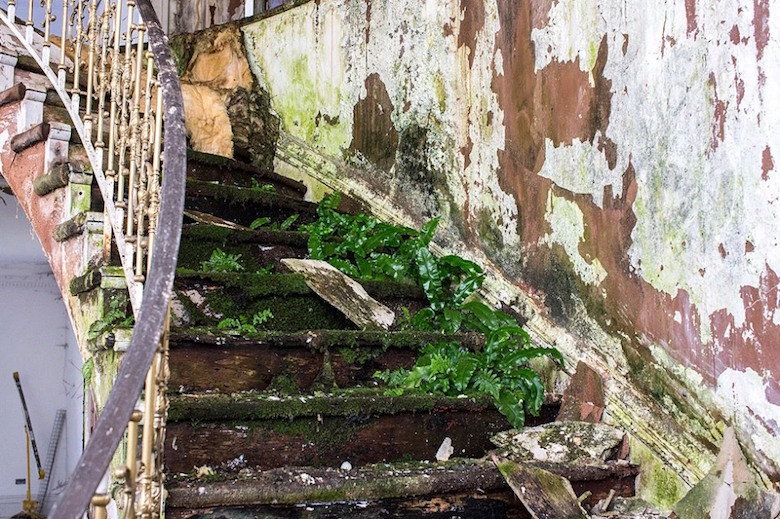In yesterday’s post about the book Moneyland that exposes how the ultra-wealthy who want to find a safe haven for the money they laundered frequently choose the option of buying mansions in the most pricey cities, not to live in but as investments. This article looks at Bishops Avenue, an exclusive street in London known as ‘Billionaires’ Row’, that now features multi-million dollar homes that have been bought and remain unoccupied so that they are falling apart, creating what is effectively one of the world’s priciest slums.
The entire neighbourhood is owned by the super-rich, ranging from Saudi princes to East European arms dealers to Indian business magnates. Yet, no one ever lives here for more than a few weeks each year. Most have been left to the staff who looks after the properties while the owners are away. Others have never been occupied. Several huge properties have fallen into ruins after lying vacant for more than 25 years. These once expensive homes are in a terribly bad shape with peeling paint, rotting carpets, water streaming down bedroom walls, collapsed ceilings, and ferns growing between broken floor tiles.
One property owner, the developer Anil Varma, called the avenue “one of the most expensive wastelands in the world.”
Among the unoccupied properties are a row of ten mansions, worth £73 million, which was bought by the Saudi royal family during the Gulf War as a place to escape to in case they were deposed. That never happened, and consequently the houses are largely unused. Another house belonged to a Kazakh businessman accused of a $6 billion banking fraud. The property was seized following a high court judgment. The former Pakistani minister of privatisation, Waqar Ahmed Khan, also held a property here, but it was repossessed by the bank. Its windows are now bared with heavy iron bars.
Many properties are registered to companies in tax havens including the British Virgin Islands, Curacao, the Bahamas, Panama, and the Channel Islands, allowing international owners to avoid paying stamp duty on the purchase and to remain anonymous.
This short film takes us inside some of these vacant properties to show the level of decay.


See how the rich people put the money back into the economy and create jobs?
I thought this looked familiar -- the Guardian wrote about this street a few years ago. It’s damning that nothing has happened in the years since. In fact that Amusing Planet articles seems to be mostly a rehash of the Guardian piece -- even one of the photos is the same!
Damn, forgot to link to the Guardian piece, that’ll teach me to skip previewing my comment. It’s here https://www.theguardian.com/society/2014/jan/31/inside-london-billionaires-row-derelict-mansions-hampstead
I have to wonder what UK policy on squatting is . . . Hm, There’s a WikiP page:
https://en.wikipedia.org/wiki/Squatting_in_England_and_Wales
In England (not sure about the rest of the UK), to help combat the housing shortage local councils are empowered to find the owners of empty domestic properties and order them to either rent or sell them. If the owners do not comply with the orders, or if the owners cannot be identified (in which case after a reasonable length of time the property is classed as officially abandoned/ownerless) the councils will go to court and have ownership transferred to themselves, then either re-sell or let the properties.
Funny how this doesn’t appear to be the case when the owners are the mega-rich.
I don’t know if it varies between local authorities, but a case near me may provide some information on why councils don’t often go down the compulsory purchase route. A house in Bristol has been empty for 16 years and the council is now forcing the owner to sell it to them. They have to buy at market rate, which could be anywhere between £0.5 and £1 million, and “the council has estimated it will cost nearly £172,000 in insurance and other costs to force the sale”. If the compulsory purchase is completed the council is set to lose “£72,000 in costs, such as insurance and stamp duty”. And then the council has to sell it on -- they can’t keep it as social housing. So hopefully they’ll be able to recoup their losses through the sale but it’s a lot of time, money and effort for the council to do this and there’s no guarantee they’ll even break even in the end. The system is broken in so many ways.